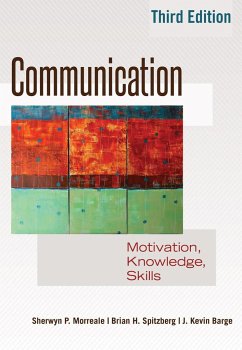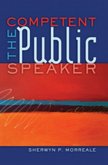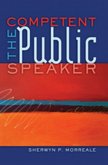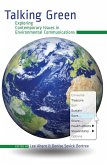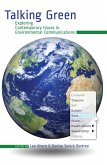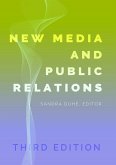Now in its third edition, Communication: Motivation, Knowledge, Skills (previously Human Communication: Motivation, Knowledge, and Skills) is a textbook for the basic (hybrid) communication course at 2- and 4-year colleges and universities.
Beginning with the premise that all forms of communication can be important, this text helps students develop a framework for choosing communication messages and behaviors that will allow them to communicate competently in any situation. Through a theoretically-based and skills-oriented approach, the text emphasizes the basic themes of motivation, knowledge, and skills across the contexts of interpersonal communication, small group communication, public speaking, and computer-mediated communication and mass communication. Building on the success of the first two editions, this third edition is unique in that it:
- Features the collaborative work of three recognized experts in the communication discipline, each of whom is a specialist in one of the three areas covered in the hybrid iteration of the basic communication course: Interpersonal communication, Brian H. Spitzberg; Small group communication, J. Kevin Barge; Public speaking, Sherwyn P. Morreale.
- Offers a unified approach to the basic processes of human communication based on a communication competence model pioneered by Brian H. Spitzberg.
- Includes extensive coverage of mediated competence and mass communication.
In addition to theoretically based but accessible content, all chapters have features designed to enhance teaching and learning. These include the story of a student experience that opens each chapter and is discussed and used to illustrate the chapter's content; tables and boxes related to important topics presented to intrigue student readers and "lock in learning"; self-assessment tools students can use to evaluate their own motivation, knowledge, and skills related to real-world situations; and knowledge-building discussion questions and competence activities for home assignments or in-class groups at the conclusion of each chapter.
A new Test Bank to accompany the third edition is available to instructors as a free PDF.
Beginning with the premise that all forms of communication can be important, this text helps students develop a framework for choosing communication messages and behaviors that will allow them to communicate competently in any situation. Through a theoretically-based and skills-oriented approach, the text emphasizes the basic themes of motivation, knowledge, and skills across the contexts of interpersonal communication, small group communication, public speaking, and computer-mediated communication and mass communication. Building on the success of the first two editions, this third edition is unique in that it:
- Features the collaborative work of three recognized experts in the communication discipline, each of whom is a specialist in one of the three areas covered in the hybrid iteration of the basic communication course: Interpersonal communication, Brian H. Spitzberg; Small group communication, J. Kevin Barge; Public speaking, Sherwyn P. Morreale.
- Offers a unified approach to the basic processes of human communication based on a communication competence model pioneered by Brian H. Spitzberg.
- Includes extensive coverage of mediated competence and mass communication.
In addition to theoretically based but accessible content, all chapters have features designed to enhance teaching and learning. These include the story of a student experience that opens each chapter and is discussed and used to illustrate the chapter's content; tables and boxes related to important topics presented to intrigue student readers and "lock in learning"; self-assessment tools students can use to evaluate their own motivation, knowledge, and skills related to real-world situations; and knowledge-building discussion questions and competence activities for home assignments or in-class groups at the conclusion of each chapter.
A new Test Bank to accompany the third edition is available to instructors as a free PDF.
»The book begins with a bold claim that communication competence is the single most important factor in determining quality of life. As it turns out, I agree, and I think that after reading this book, students will too. Starting with an emphasis on basic competencies in language, nonverbal communication, and listening, the book then clearly and effectively explicates knowledge and skills in the traditional areas of communication studies - interpersonal communication, small group communication, and public speaking.« (Phil Backlund, Director, National Communication Association's Educational Policies Board, Central Washington University)
«Clear, concise, and comprehensive, the third edition of Communication: Motivation, Knowledge, Skills highlights a contextual applied approach to communication competence without sacrificing the big picture, the philosophical aspects of communication foundational to any introductory class. Its mix of micro- and macro-level concepts, including media literacy, will likely meet the demands of any course curriculum. Students and teachers alike will benefit from the book's easy-to-understand and conversational tone.« (Kurt Lindemann, Associate Professor and Basic Course Director, San Diego State University)
»The diverse expertise of the three authors makes for a comprehensive and substantive learning experience for students in the basic communication course. Students are introduced to the discipline in a way that grounds them for future studies in communication. The inclusion of the impact of media and technology in this third edition provides insight into a phenomenon that will continue to influence the ways in which we communicate.« (Laura Austin-Eurich, Director of Undergraduate Studies, University of Colorado, Colorado Springs)
«The model of communication competence on which the third edition of this textbook is based is one I also have used in my own writings. Morreale, Spitzberg, and Barge effectively discuss the three main contexts in the basic communication course - interpersonal, group, and public speaking-using communication competence as the foundation and unifying framework for this useful textbook.« (Pamela Shockley-Zalabak, Chancellor, University of Colorado, Colorado Springs)
«Clear, concise, and comprehensive, the third edition of Communication: Motivation, Knowledge, Skills highlights a contextual applied approach to communication competence without sacrificing the big picture, the philosophical aspects of communication foundational to any introductory class. Its mix of micro- and macro-level concepts, including media literacy, will likely meet the demands of any course curriculum. Students and teachers alike will benefit from the book's easy-to-understand and conversational tone.« (Kurt Lindemann, Associate Professor and Basic Course Director, San Diego State University)
»The diverse expertise of the three authors makes for a comprehensive and substantive learning experience for students in the basic communication course. Students are introduced to the discipline in a way that grounds them for future studies in communication. The inclusion of the impact of media and technology in this third edition provides insight into a phenomenon that will continue to influence the ways in which we communicate.« (Laura Austin-Eurich, Director of Undergraduate Studies, University of Colorado, Colorado Springs)
«The model of communication competence on which the third edition of this textbook is based is one I also have used in my own writings. Morreale, Spitzberg, and Barge effectively discuss the three main contexts in the basic communication course - interpersonal, group, and public speaking-using communication competence as the foundation and unifying framework for this useful textbook.« (Pamela Shockley-Zalabak, Chancellor, University of Colorado, Colorado Springs)

